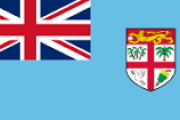Thank you M[x] President,
I take the floor on behalf of the members of the Pacific Islands Forum with presence at the United Nations.
We are pleased to support the Pacific Multi-Country Programme Document presented to the Executive Board for approval.
UNICEF has consulted diligently across the Blue Pacific region to ensure that its programme genuinely reflects national and regional priorities.
We would particularly like to acknowledge the genuine challenges of covering such diverse geographies and needs in one strategy.
Multi-country offices deserve more recognition – particularly when they cover multiple time-zones in an area where travel is difficult and countries whose populations range from 1,500 to almost a million people.
Our regional diversity complicates data collection and service provision in rural and remote communities – which are often those displaying the highest rates of adverse social indicators.
The COVID-19 pandemic has also negatively affected both progress towards the Sustainable Development Goals in our region and our ability to accurately update and respond to changes in key development indicators in these remote areas.
With poverty rates expected to have risen during the pandemic, we know our children and young people and women are particularly vulnerable.
We therefore commend the work of UNICEF staff in the Pacific to the attention of UNICEF Executive Director Catherine Russell.
Excellencies,
The Multi-Country Programme’s vision is that ‘every child in the Pacific, including adolescents, and especially the most excluded, survives, thrives, learns, is protected and develops to her or his full potential, free from poverty in a safe environment and sustainable climate.’
We particularly appreciate UNICEF efforts, as part of the broader UN strategic planning process, to align its work in the coming five years with the goals of the 2050 Strategy for the Blue Pacific Continent – the overarching regional vision agreed by Pacific leaders at last year’s PIF Leaders Meeting in Fiji.
The Multi-Country Programme’s emphasis on health and nutrition, education, child protection, climate-resilient water, sanitation and hygiene and social policy components illustrates our shared vision for the future of our Blue Pacific Continent. We also support the MCPD’s emphasis on monitoring, evaluation and ongoing, responsive implementation in our region.
We are therefore pleased to endorse the MCPD and appreciate the work of UNICEF in preparing it. We look forward to working with them on its implementation.
M(x) President,
I would now like to make some remarks in my national capacity...
On behalf of the Government of Fiji, I congratulate UNICEF for development of to the UNICEF Pacific MCPD for 2023 to 2027.
I thank UNICEF for all of its work in Fiji and reconfirm my Government’s support for our presence in Suva in support of 14 Pacific Island Countries. You are aware that UNICEF is one of the largest UN agencies and also employs many Fijian nationals.
UNICEF has been a strong partner of Fiji for more than 25 years. During that time UNICEF and the Fijian Government have worked together to strengthen systems and policies for children. This includes working closely with key Fijian Ministries and Departments, including Health, Education, Finance, Public Utilities, Women Children and Poverty Alleviation and the Office of Statistics.
Over this time, UNICEF and Fiji have made substantial progress in improving the lives and of children in Fiji, especially the most vulnerable. For example: Fiji has achieved the Sustainable Development Goal of fewer than 12 deaths per 1,000 live births and 25 deaths per 1,000 live births for under-fives.
Fiji has the highest coverage in antenatal care in the region, with 98 per cent of women having at least one health visit during their last pregnancy.
With UNICEF and other partners’ support, Fiji was the first Pacific country to achieve high coverage with COVID-19 vaccination, enabling us to reopen our borders early and begin to rebuild our economy.
89 per cent of students aged 5-24 years attending school in Fiji received school related support such as transport assistance, free textbooks or free tuition during the 2021 academic year.
Despite progress in recent decades, there is room for improvement, particularly with regards to the triple burden of undernutrition, micronutrient deficiency and overweight, as well as violence against children. We have also seen a downturn in education due to the pandemic that we must now focus on reversing.
Fiji’s Prime Minister Honourable Rabuka has already highlighted his government’s commitments and priorities for children and to ensuring the continued progress of sustainable development and inclusive economic growth in Fiji.
Natural disasters, like flooding and cyclones are common, and are increasing in intensity. The costs of disasters, and the impact of COVID-19, highlight the need for UNICEF to engage strongly in the growing innovative financing space for climate action in support of children in Fiji and the Pacific.
Education is at the core of the Government’s commitment to the people of Fiji. This has been demonstrated by the newly announced back to school assistance of $200 per child to help families facing hardship due to COVID-19 and the contraction of the economy.
The Government has also highlighted the urgency for ensuring access to safe and improved water for all, especially for those in rural and remote areas.
The Government is committed to investing in children’s rights, access to justice, and ending all forms of violence against children.
Ladies and Gentlemen, please let me conclude by affirming Fiji’s support for UNICEF Pacific programme and thanking UNICEF for their ongoing commitment to the wellbeing of the children of Fiji.
Vinaka vakalevu – I thank you.


